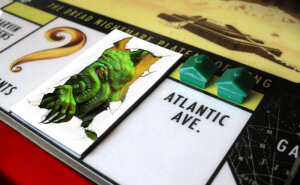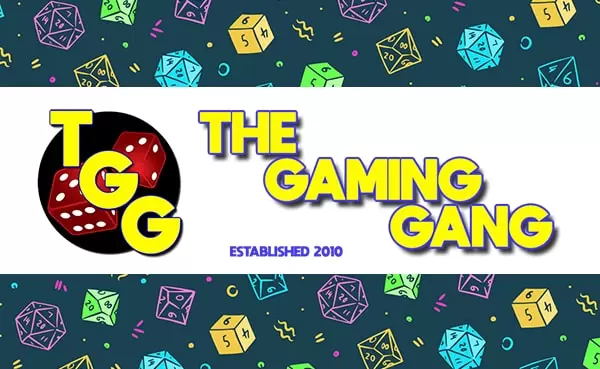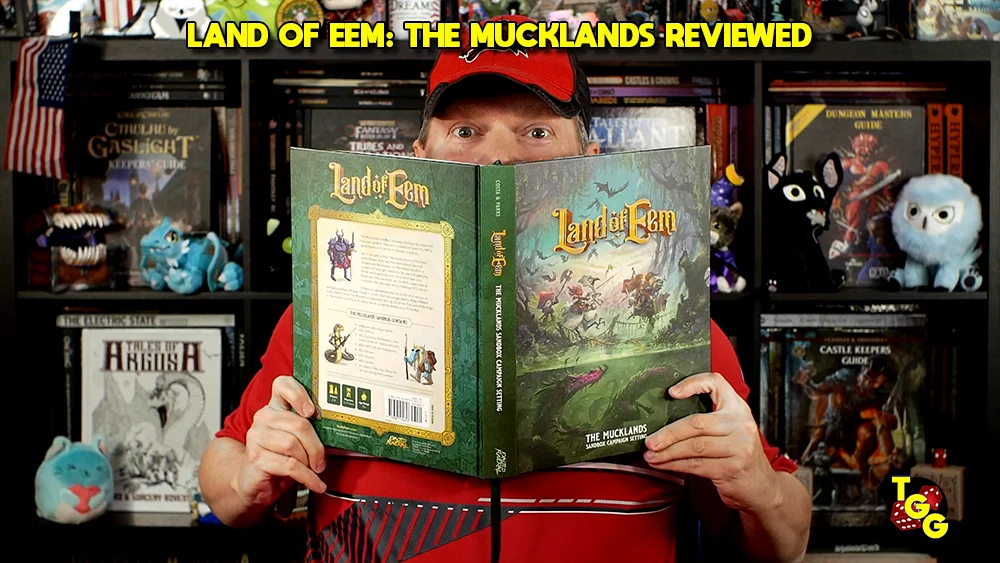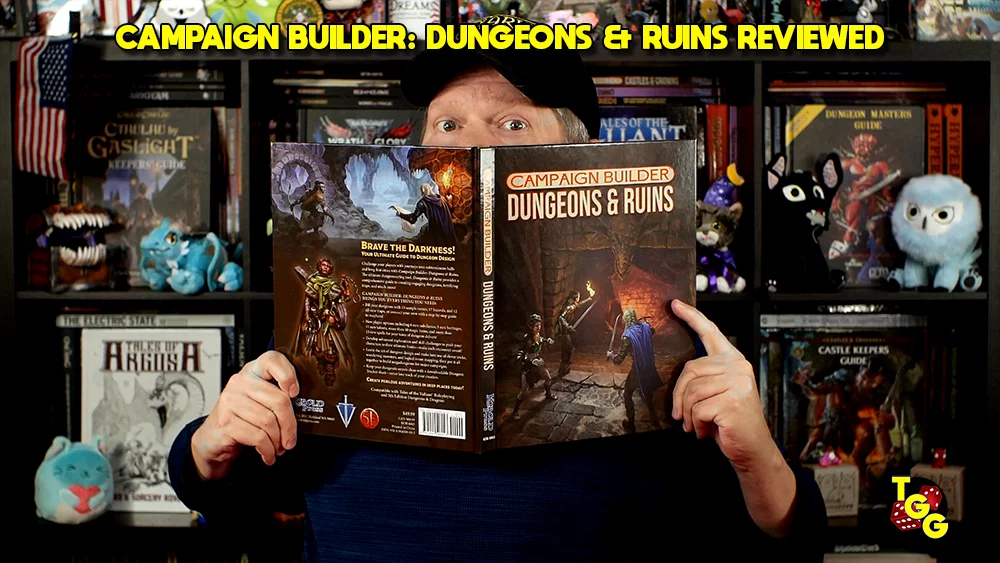
We know this isn’t the first crowdfunded project to make the cut and never see the light of day; the fact is there are more floating around out there than we’d like to admit and it seems as if we’re seeing the numbers increase all the time. Add to this the number of projects which are in a state of near limbo over a year after funding dispersement (or even the increasing number of out and out shams) and the red flags have to be raised higher once again.
I’m sure some reading this are saying to themselves, “Jeff’s going to go off on another Kickstarter rant,” or “Didn’t Jeff have a project that didn’t fund over on KS? It must be sour grapes!” Well, first off, I’m not going to rant about Kickstarter simply because I’ve softened a bit over time about all the crowdfunding platforms. I’ve seen some great games come out of Kickstarter such as Viticulture and VivaJava – to name just two. As for my project itself, which eventually moved to Indiegogo from KS, that was to support something which already existed; this site as a matter of fact. I’ll be the first to say I’m not the greatest promoter of TGG so it wasn’t if I was out there with nonstop drum banging to support either project.
In other words, this isn’t a “Kickstarter rant” but simply another op-ed piece.
There are quite a few things which don’t sit right with the Forking Path project, and the direction many Kickstarter projects have taken, which should be discussed. I’ll state up front I have no affiliation with any of the principles involved such as Mr. Chevalier or designer Keith Baker and artist Lee Moyer. I had no real interest in The Doom that Came to Atlantic City outside of a news piece Elliott had posted back in the day and a mention on one of the podcasts during a news segment; just because I love all things Lovecraftian doesn’t mean I love ALL things Lovecraftian… In my opinion a game which seems like a Monopoly knock off is still a knock off no matter what theme is pasted on. Not to say Baker and Moyer were just tossing together any old thing as far as a design but Doom did strike me as a roll and move sort of game which was clearly modeled as a parody of sorts on Monopoly.

For the most part (and anyone out there who has experience with crowdfunded gaming projects now in the hands of supporters can feel free to chime in here) when you’re calculating your goal, and the price point at which a supporter will receive a game, you not only plan for the supporter’s copies but also what will provide you with enough stock to provide to distributors or direct sales to retailers. To use Doom as an example, the base pledge level to receive a copy was $50. Granted, there were stretch goals to entice support but the fact remains at fifty bones you were going to get a copy of the game. At a $35k goal that would equate to 700 copies being produced. Hopefully the reader doesn’t believe it would cost $50 to produce each game though… The reality would be closer to $13-$17 to produce each copy including machining the pieces, the artwork, game board, cards and so forth. In truth when you’re backing a crowdfunded game you’re actually not only pledging for your own copy but also one which will be available through retail channels and standard price mark up.
Now you may be thinking you’re getting jobbed on the price but if The Doom that Came to Atlantic City would have carried an MSRP of $50 anyway you really aren’t. Most successful crowdfunded projects need to sock money away for a second print run too since that’s where companies make the real profits; production costs are much lower for subsequent runs since machines are already tooled, molds created, graphics translated, dies cut and so on.
What leaves a bad taste in my mouth about this project (and no doubt has supports livid and screaming foul) is the impression Doom was nowhere near ready to even go into production. Since I wasn’t a backer I’m not privy to a vast majority of updates which were posted to the project – a red flag there due to a lack of transparency to the casual observer – so I haven’t a clue to what point in the process the title had reached. What I can say is Mr. Chevalier’s statements of why the project was cancelled border on the ludicrous.
If you’re interested in the full announcement by all means follow the link in the first paragraph and give a gander but I haven’t reproduced it here since I’m not one to give credence to what appears to just be a “woe is me” post. What Erik Chevalier does state is the $122,000 evaporated mainly due to his lack of experience in publishing games. Funny, but there seem to be a whole lot of other folks out there, with absolutely no experience in the industry, getting their funded titles into the hands of backers; all that with a lot less money to work with as well.
As for what Mr. Chevalier points out swallowed the funding, I have to do more than scratch my head. Forming a company? I can’t tell you what registering a company may cost in Oregon but in most states it’s never more than a few hundred bucks and why would backers foot the bill for that is a question needing to be answered. Paying artists? Most folks I know providing art for games (especially small press or start-ups) receive an advance and then money on the backend. Paying for the miniatures? Yes, this could prove a touch costly because of the molds but I have a sneaking suspicion those molds were never tooled. It looks as if the prototypes were complete but what the sculptor received as far as payment is unknown. Moving back to Portland? Not sure how someone’s relocation expenses could ever enter into the equation as far as getting a game produced – not in our modern world of Skype, Google Drive, email, or other means of sharing info. And software licensing? Clueless as to that since Doom wasn’t being sold as a computer game and if you’re bringing in graphic artists to work on a project they handle all the software issues and costs.

Lastly, I have to say Keith Baker and Lee Moyer have my sympathies as well. Baker has created some fun designs (Cthulhu Fluxx anyone?) and Moyer is a respected artist. I’m guessing they hadn’t received a dime from this project and now both of their reputations are going to be dinged through association. Speaking of dimes, I’d be curious who outside of Mr. Chevalier received any of the $122k. My guess not too many folks.
Interestingly enough Mr. Chevalier stated he will do his best to refund backers although he’s out of work and there are no funds available. Those who will be first on the list are those who purchased The Doom that Came to Atlantic City on The Forking Path website (can you say trying to avoid mail fraud?) followed by Kickstarter backers. I’ll take a stab Chevalier will hide behind the no guarantees clause over on KS so it’s highly doubtful the backers will ever see a penny of their pledges again. I’ll be the first to say if everyone involved gets their money back I’ll personally run over to a store, buy a copy of Monopoly, sit down and play it, and then eat the entire game…
The Doom that Came to Atlantic City is yet another black eye for Kickstarter projects and, outside of Erik Chevalier, everyone associated with it must feel as if they’ve been cursed by the Old Ones themselves. To the observer it looks like someone had a grand time with $122k and anyone else is out of luck. In choosing a name for his new company maybe Mr. Chevalier should have aimed for a bit more truth in advertising and replaced the second word in The Forking Path with a different “f” word which immediately comes to mind.
- Save on the Defiant Urban Fantasy RPG through Bundle of Holding - Apr 28, 2025
- Pathfinder: Thirst for Blood Reviewed - Apr 28, 2025
- The Old Margreve for Tales of the Valiant Reviewed - Apr 27, 2025


















